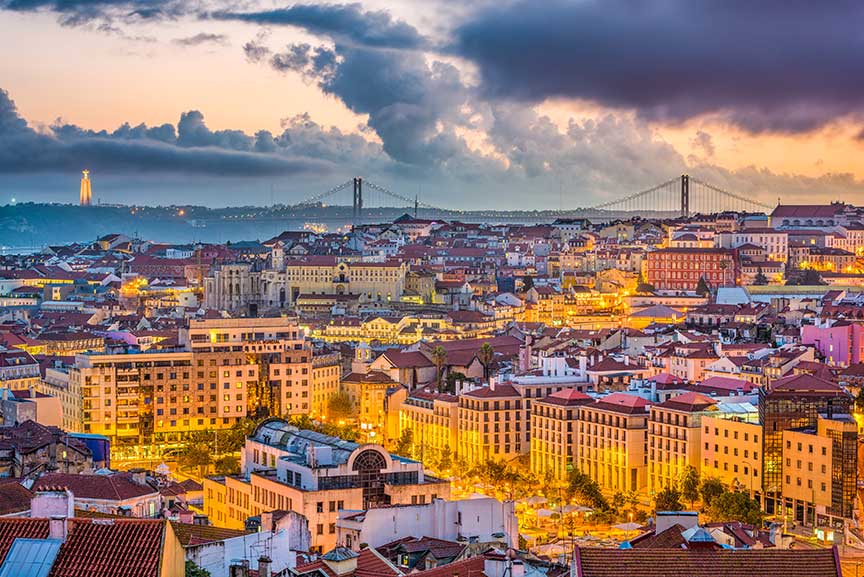1986 Portugal and Spain Join the Common Market

Lisbon Skyline
On January 1, 1986 both Portugal and Spain joined the European Common Market, thus expanding the market..
During the 1970s and early 1980s, both Portugal and Spain underwent significant political changes. Portugal experienced a peaceful revolution in 1974, known as the Carnation Revolution, which led to the end of its authoritarian regime and the establishment of a democratic government. Similarly, Spain transitioned from the dictatorship of General Francisco Franco to a constitutional monarchy under King Juan Carlos I after Franco's death in 1975.
The democratic transitions in both countries paved the way for their eventual accession to the European Communities. Portugal and Spain saw membership in the EC as an opportunity to strengthen their newly established democratic systems, secure economic growth, and enhance their international standing. Both countries applied for membership in 1977 and started negotiations with the EC in 1979.
The accession process took several years, as existing member states had concerns about the potential impact of admitting two countries with relatively weak economies and large agricultural sectors. There were also concerns about the potential influx of low-skilled labor from Portugal and Spain into the other EC countries. Nevertheless, after lengthy negotiations and significant economic reforms in both countries, Portugal and Spain signed the Treaty of Accession on June 12, 1985, and officially joined the European Communities on January 1, 1986.
Impacts of Joining the Common Market
Portugal and Spain's accession to the EC had significant implications for both countries. Joining the Common Market allowed them to benefit from the removal of trade barriers, leading to increased trade and investment opportunities. In particular, Portugal and Spain's agricultural sectors gained access to new markets, while the influx of foreign investment helped modernize their industries.
Moreover, membership in the EC provided both countries with access to financial support and structural funds aimed at promoting economic and social cohesion within the organization. These funds played a crucial role in financing infrastructure projects, improving education and training systems, and supporting regional development in Portugal and Spain.
Overall, joining the European Communities facilitated the economic modernization and growth of Portugal and Spain, helping to consolidate their democratic systems and integrate them more fully into the European and global economies.
 >
>